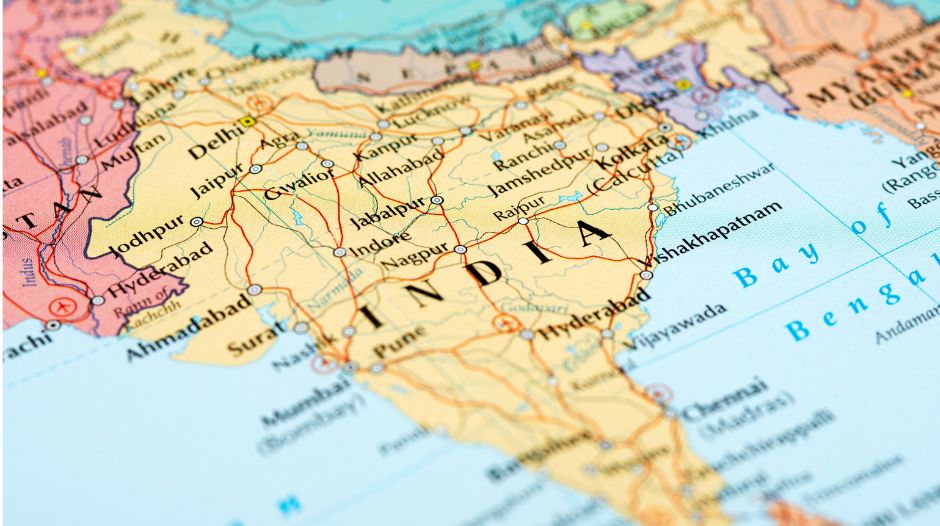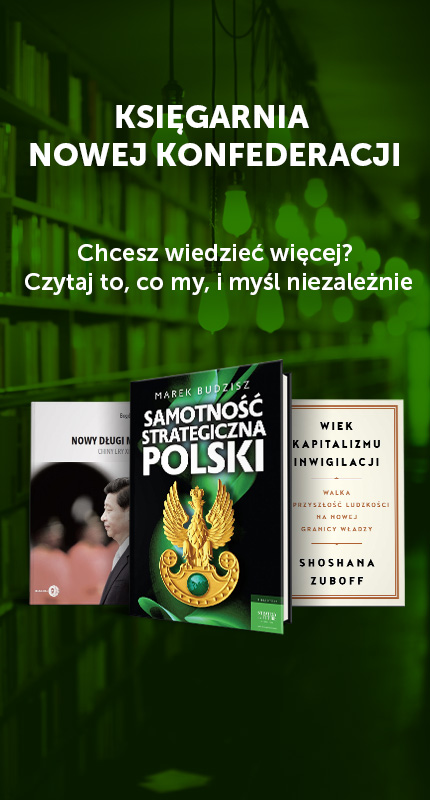
Nie masz czasu na zapoznanie się z całością artykułu?
Wystarczy, że klikniesz ikonę „oznacz artykuł do przeczytania później”. Wszystkie zapisane publikacje znajdziesz w profilu czytelnikaThe Sino-Russian relationship should not be seen as an alliance of revisionist powers

Jakub Kamiński: Politicians and analysts in the West often perceive both China and Russia as so-called “revisionist powers”. In this perspective, these two countries cooperate, because it is in their common interest to weaken the superpower position of the United States. Do you agree with this?
Prof. Yu Bin: This definition has been floating around for a while, particularly since 2016, when the West started a debate about the end of the so-called liberal international order (LIO). This was a time when Western democracies themselves (including Poland) were regarded as part of this democracy retreat. The debate, however, was primarily driven by the sense of crisis of the West itself, at least partially because of the British decision to withdraw from the EU and the rise of ultra-conservatives like Donald Trump in the United States. 2016 was the culmination of the LIO discourse as the West itself seemed increasingly ungovernable. Meanwhile, you find many academics, policymakers, think tanks started to blame China and Russia for “undermining” the LIO as “revisionist powers”.
Lumping together China and Russia as revisionist powers, however, makes little sense because they are very different. China actually has been working with the Western liberal order, which China had accepted, and also benefited from it. The LIO, no matter how imperfect it was, was quite open and generous for China. Indeed, China believes it helped strengthen the LIO. Russia, on the other hand, has been quite different because of its historical trajectory. The Soviet collapse led to 15 different entities, with many Russians residing outside the Russian Federation till today. So Russia has constant frictions with many of its near-abroad former Soviet republics. Meanwhile, Russia has been bitter about NATO’s eastward expansion.
For Moscow and Beijing, particularly from Putin’s perspective, the West has created its own problems. The growing number of refugees (37 million according to a recent study by Brown University) was largely caused by a series of Western-backed color revolutions, regime change, and nation-building efforts in the Greater Middle East, including North Africa (Iraq, Libya, Syria, etc.). These were targets of Western waged democracy enlargement efforts but turned out to be failed states. The only outcome from these Western efforts are endless refugees that overwhelmed the Europeans. It caused the rise of populism in the West, because people are scared of Muslims, and many of them are seen as aliens if not terrorists. America has its problem with its southern border, too.
Gorbachev’s visit to Beijing in 1989 was a turning point. The two countries started to minimize and/or neutralize the ideology factor in bilateral relations
Chinese do not feel comfortable with the seemingly endless “endism” produced by Western intellectual elites, be it Fukuyamanian “end of history” at the end of the Cold War, or the recent variant of the “end” of the so-called liberal international order (LIO). For the Chinese, the real world is full of gray areas between excessive optimism and unwarranted pessimism in the West.
For the Chinese, the ultimate political wisdom is to be in the middle. Confucianism means avoiding extremism (中庸). But the West has been switching between conceptual and policy extremes, and that’s the problem in the way of thinking. I’m questioning the end of anything. History always carries with it the burden of the past into the future. In a broad sense, Russia and China are large and perhaps genuinely independent entities with their respective national interests. It is naïve to expect them to strictly follow the steps of any other nation or group of nations.
So we can agree that Russia and China are independent entities, but it is clear that they are in some kind of special relationship. Would you call it an alliance?
For more than thirty years, Russia and China have reconciled, normalized, and consolidated their relations. Now they are in the state of “Strategic Partnership of Coordination for a New Era” for more than 30 years, which has been quite stable, growing, and different from their respective relationship with the West. There are two sets of drivers for the current relationship between Russia and China. One is internal and the other is external.
“Internal” here means bilateral. The process of reconciliation started in the earlier 1980s even before Gorbachev came to office. Prior to that, the two communist giants competed for representing true Marxism. From “honeymoon” (1949-59) to “divorce,” (1960-89) the ideological factor exaggerated the friendship during good times and amplified disagreements when things became sour. Gorbachev’s visit to Beijing in 1989 was a turning point. The two countries started to minimize and/or neutralize the ideology factor in bilateral relations. From that point onward, even though differences remain, the ideological factor as a driver in bilateral relations is over. The two countries started a pragmatic phase. As independent powers, they managed to treat each other as who they were, not what they wished to become. By stopping interfering in each other’s domestic affairs, Russia and China, the two “non-Western” powers, are in fact back to the 17th-century Westphalian system of sovereign states in Europe. Meanwhile, Wesphalianism (sovereignty and non-interference in domestic affairs) has been largely cast aside by the prevailing liberal interventionism within the LIO since the end of the Cold War. There are problems between the two large powers, but they have been probably and pragmatically handled or put aside. After the “heart-melting” alliance (1949-59) and “heart-breaking” confrontation (1960-89), the two continental powers have moved away from the love-or-hate oscillation and toward more pragmatic and complex reciprocity for the long haul.
Neither Moscow nor Beijing would sacrifice its current stable and normal ties with one another in order to please the West
The other driver is external, particularly in their respective relations with the United States. After the end of the Cold War, both Russia and China looked to the West/US, but had different results. China steadily developed, while Russia started a historical decline. But regardless of the fate of the two formal Communist giants, both have departed significantly from their past legacies. Despite their hugely different national trajectories, they’ve been quite friendly towards each other. For Western realism, the rise and fall of great powers inevitably lead to inter-state conflict. Between Russia and China, however, it has not happened. Meanwhile, Russia and China continue to have problems with the U.S. largely because of the ideological factor: the US missionary impulses and liberal interventionism for democracy promotion regardless of the huge cost and negative impact upon others and, ultimately, onto itself.
What is your personal view on this topic?
I grew up during the Sino-Soviet honeymoon. The massive Soviet input into China’s domestic process—economic and military assistance, technology transfers, top-down bureaucracies, five-year plans, etc.—produced both friendship and friction. By the late 1960s, the Sino-Soviet ideological polemic assumed a military dimension when millions of forces were deployed along the 7,000-kilometer Sino-Soviet borders after the 1969 border clash. I served in the Chinese infantry for four years, ready to embrace the Soviet invasion along China’s northern borders. The decades of Sino-Soviet confrontation incurred huge costs for both sides. After the Cultural Revolution and with the final removal of the “three obstacles” in bilateral relations (Soviet military deployment along the border, Afghanistan, and Soviet support of Vietnam’s aggression in Southeast Asia), the Chinese started to look at this part of their own history and believed that ideological excessiveness in relations with Moscow made little sense and should be avoided at all cost. Relations with Russia have been stable and pragmatic not only because China now respects Russia, but also because China learned the lessons of the past. China should never conduct relations with any other country solely based on China’s own beliefs. This is the one important issue when the Chinese think about relations with Russia, and with the West, too.
There is a quite popular opinion of some analysts (like Prof. John Mearsheimer), that it’s in the American interest to turn Russia against China. Is that a possible scenario?
I respect Prof. Mearsheimer as a consistent theorist. His offensive realist theory, however, depicts such a pessimistic view of the post-Cold War world, in that “…for every neck, there are two hands to choke it” (The Tragedy of Great Power Politics, 2001). His fatalism basically rules out any possibility of peaceful power transition in a unipolar world dominated by the West. In contrast, the dominant structural realism by Kenneth Waltz during the Cold War considers bipolarity between the Soviet Union and the U.S. as the most stable world order. Similarly, John Gaddis argues that the “long peace”, which was the Cold War itself in comparison to the two total wars in the first half of the 20th century, was achieved because of the balance-of-power between the two superpowers whose leaders were prudent, and able and willing to construct a whole set of “rules of the game” (arms control, etc.) to regulate their behavior. One wonders why in this “Western civil war” (Samuel Huntington, “The Clash of Civilizations”, 1993), American theorists and decisionmakers were so prudent, if not generous, toward its opponent (Soviet Union). Fast forward to the 21st century, the steady and largely peaceful rise of a non-Western, non-Christian and non-white power (China) has yet to be theorized by the international relations (IR) community in the U.S. Instead, IR theorists like Mearsheimer are so fatally attracted to the zero-sum game between states.
In the age of liberalist interventionism, realism has been an endangered species in the collective mindset of the US foreign policy establishment. Ironically, Mearsheimer‘s passionate argument against US liberalist intervention in Ukraine for the sole purpose of enlisting Russia’s help to contain a rising China was quickly embraced by the mainstream. In 2016, a project was launched by some US academia and think tanks to brainstorm the possibilities of dividing Russia and China. Ever since then, there has been a consistent effort in the US foreign policy establishment to divide Russia from China. It remains to be seen if such an endeavor would produce anything.
What would be the cost of such a maneuver for the US and Europe?
What would Russians want from the West? This is another way to look at the question. Russia wants NATO expansion to stop or at least not go further. There have been multiple rounds of NATO eastward expansion since the collapse of the Soviet Union, despite the fact that Gorbachev and later Yeltsin were verbally promised by Western leaders that NATO would not expand to the east. Can NATO give what Russia wants? It does not seem possible at this point.
There’s the other side of the question, that is, “what would Russia gain from allying with the West against China?” That may be a bridge too far. Even if Russia gets the promise from the West that there will be no expansion of NATO further to the East, it’s not in Russia’s interest to ally with the West at the expense of its current stable relations with China. For the majority of the Russian elite, being pragmatic with China remains one of the central themes of Russian foreign policy, regardless of relations with the West.
China and Russia are no longer overly sensitive if the other side improves relations with the West/US. (…) In fact, Beijing and Moscow would welcome any relaxation of tension with the U.S. by their strategic partner
The same is also true for China. China wishes to improve relations with the United States and to maintain a pragmatic approach with Europe, but not at the expense of relations with Russia. Neither Moscow nor Beijing would sacrifice its current stable and normal ties with one another in order to please the West. This is a different type of triangular dynamic between Russia, China, and their respective relations with the West, either with Europe or with America. This is a different dynamic from the Cold War Kissingerian strategic triangle, in which someone’s gain meant loss by someone. It’s not a strictly zero-sum game. I define it as a “not-so-strategic” triangle. In other words, China and Russia are no longer overly sensitive if the other side improves relations with the West/US. This is particularly true in the past few years as the world is getting increasingly volatile and even dangerous. In fact, Beijing and Moscow would welcome any relaxation of tension with the U.S. by their strategic partner. In a brave world of the pandemic, popularism, and the toxic mix of WMD and IA, what’s the point of maximizing one’s own interests at the expense of anyone else? Conversely, the West/US tends to see any Russia-China interaction as a sign of a “Beijing-Moscow axis” against the West.
The current Sino-Russian “Comprehensive Partnership and Strategic Cooperation” (CPSC) is not an alliance, but a highly institutionalized process in which the sides interface with one another for more predictable and stable returns and assurance in the volatile post-Cold War decades. As a result, Beijing and Moscow may be reluctant to reciprocate with Washington’s overture to any of them with the purpose of driving a wedge between the two, unless Washington makes explicitly clear in both words and deeds that it forever renounces its habitual interferences into other countries’ domestic affairs.
Still, the West tends to see the CPSC as an alliance, at least an emerging one. Beijing and Moscow, however, are “reluctant allies” at best. A typical alliance requires a clearly defined third party as its target. Even with the rising tension in the Ukraine and Taiwan cases at this moment, China and Russia are yet to take that path toward a rigid alliance mechanism for a simple reason: alliance deprives their sovereignty and independence. Beyond that, an alliance by itself is not necessarily conducive to peace and stability. The alliance-obsessed West seems to forget that it was the rigid and binding alliances that produced the fateful “Guns of the August” in 1914. Within a week after the assassination of Archduke Franz Ferdinand, major powers in Europe declared war on each other largely because of the interlocking alliance mechanism, according to Prof. Scott Sagan of Stanford University (“1914 Revisited”). Wilsonian depiction of WWI as a “war to end all wars,” paradoxically, unleashed the most destructive power in human history.
Even with the rising tension in the Ukraine and Taiwan cases at this moment, China and Russia are yet to take that path toward a rigid alliance mechanism for a simple reason: alliance deprives their sovereignty and independence
The 21st-century alliance (NATO), however, may be different. Had the Bush administration listened to its “old European” allies (Germans and French, plus Russians) to give UN inspectors some more time in 2003, thousands of American GIs would still be alive, not to mention tens of thousands in Iraq, which happened to be the bloodiest democracy-making operation in world history. The current Ukraine crisis seems like a déjà vu of the Iraqi crisis in which Washington counted on its “new European” allies.
In the case of Ukraine, China remains neutral, albeit sympathetic to Moscow’s stance. This is because Kyiv, too, has been a strategic partner for Beijing. For China, the best is to maintain good and working relations with both Russia and Ukraine. Russia, like the Soviet Union, has consistently supported the “one-China” policy. It remains non-committal, however, to any foreseeable crisis in the Taiwan Strait for the simple fact that Russia is not a military ally of China.
That said, the CPSC could be highly effective in synchronizing joint actions, particularly over issues of grave concerns by both countries, such as the US missile defense (MD) deployment in Asia, the rapid and chaotic Afghan withdrawal, the creation of AUKUS, instability in Central Asia, etc.
What is the perspective of Chinese elites on contemporary Russia?
The Chinese have different perceptions of Russia, ranging from admiration of Russia as a “fighting nation” (战斗民族) meaning decisive and masculinity, to the lingering grievances for Russia’s territorial gains of China’s northern territories before the 20th century. In general, however, the Chinese respect Russia as an independent civilization with a strong and unique cultural, intellectual, scientific potential regardless of its historical decline. Many also understand Russian pride and self-esteem. At a minimum, Russia is a country that China should not ignore, nor should look down upon. It is an independent nation that deserves respect. Some in China do worry about what would happen after Putin. This is a big issue and people discuss this. But it never affects the bilateral relations.
Perhaps more than anything else, the Chinese understand that Russia is an important neighbor with which China shares a 4000-plus kilometers long common border. And that should remain a friendly line. The kind of confrontation between the former Soviet Union and China should never be repeated, regardless of China’s relations with anyone else. The cost for China to make Russia an enemy is too high, and vice versa. To avoid this, the two countries have developed a series of institutionalized mechanisms, including border fixation as the final line, periodical inspections, and a host of confidence-building measures.
For China, the best is to maintain good and working relations with both Russia and Ukraine
Another thing is the historical outcome of World War II. The political elites of the two countries quite agree with the fact that the fight against Nazism and Japanese militarism should be remembered as historical fact of life. It has been, however, problematic in Europe and America that many seem to forget about who fought the Nazis. The distortion of history is shocking for the Chinese and Russians who bore disproportionally the sacrifice in WWII (27 million Russians and at least 20 million Chinese died). In October 2021, the Russian and Chinese navies conducted a first-ever joint patrol around the Japanese archipelago. Back in 1950, Japan was the only designated target of the Soviet-China Treaty of Alliance for good reasons: the Empire of the Sun defeated and humiliated both China (1895) and Russia (1905) before unleashing its full potential at the U.S. in December 1941. For China and Russia, however, the defeat by Japan shook to the core of the two traditional and continental giants, thus opening the floodgate for radical social changes for much of the 20th century. And the rest was history. A replay of the early Cold War is unlikely in the 21st century. There is, however, an emerging faultline between continental and maritime powers in Asia-Pacific.
And how do the Chinese perceive Russian current and future problems?
Russia has recovered significantly under Putin who has restored Russia as an important international player with confidence and pride. Indeed, at the end of Putin’s first term as Russian president, I coined the phrase “Putin the Great” (Yu Bin, “The Three Players,” Harvard International Review, summer 2004). Russia’s economy, however, has undergone some difficult times since then, particularly in the non-energy sectors. The Chinese have been quite frustrated with the business and investment climate there. But many still see opportunities in Russia. It’s a very complex relationship. As a formal Soviet-style economy undergoing fundamental changes, the Chinese, perhaps more than anyone in the West, understand the enormous challenge and difficulties in the transition away from a planned economy. The Chinese political elites, therefore, disagree with West’s ubiquitous public humiliation of Russia as an economically failed state (Obama) or Putin as a “killer” (Biden).
The way Russian President Putin is treated by the West is quite ironic because, in the early years of his presidency, Putin was expected to distance Russia from China. This was because many in Russia believed Yeltsin became too close to China in his last few years in power. In his last foreign trip to Beijing, Yeltsin went as far as to “remind” the West that Russia was a nuclear power and the West should not ignore that. He became very upset by the Western war in Kosovo, NATO expansion, the treatment of Serbs, etc. So even under a democratic president, Russia became closer to China. And that made some Russian elites uncomfortable. Putin was therefore expected to distance Russia from China and he actually tried. He even wanted Russia to join NATO and jointly develop missile defense with the U.S. His reach to the West was nonetheless either ignored or dismissed. It took the Georgian war (2008), the Ukraine crisis (2014), and further NATO expansion to make Putin pivot to the east. In a sense, it was the West that made Putin closer to China.
The Chinese have different perceptions of Russia, ranging from admiration of Russia as a “fighting nation” (战斗民族) meaning decisive and masculinity, to the lingering grievances for Russia’s territorial gains of China’s northern territories before the 20th century
Perhaps more than any time in the history of their bilateral relations, China and Russia differ so much in terms of their domestic setting. Both have departed significantly from their communist legacies and returned, to different degrees, to their cultural/religious heritages: Confucianism for China (CCP as the “Chinese Civilization Party,” according to Mahbubani) and “moderate conservatism” for Russia with a hefty dose of Eastern Orthodoxy. Precisely at this very moment of diverse national trajectories, they have managed to achieve stable relations thanks to their historical return to Westphalianism of noninterference in each other’s domestic affairs, the foundation of the modern world system of sovereign states.
Meanwhile, Washington continues its exceptionalism in the Westphalian system and finds itself now battling China and Russia abroad and politico-ideological polarization at home. This was ironic in that both Moscow and Beijing were friends of Washington at the end of the Cold War 30 years ago when Western liberalism was still somewhat balanced by Western Marxism (Soviet Union). The end of the Soviet Union 30 years ago was the beginning of the rise AND the alleged falling of the LIO, for better of worse.
Photo: Wittenberg University
Zobacz
The idea of “Solidarity” has been killed in Poland after 1989. Law and Justice fills this space only rhetorically
The tragedy of Poland is that it had to conform to the demands of the international Western community. It had to become aggressively capitalist and corporatist and it could not assert its independence. Jarema Piekutowski interviews Maurice Glasman
Khanna: Just because I'm a geopolitician by education, does not mean I'm an ideologue. Conectivity today is a battlefield for influence
Is Parag Khanna the second Fukuyama? Will we see a brutal race for the greatest possible connectedness? Or will conectivity bring peace, reduce the number of classic warfare? What will be the role of the West in this competition, and how much will the Belt and Road initiatives mean? Will nation-states fade away in favor of tribalism?
A Tale of Two Monsters and Four Elements: Variations of Carl Schmitt and the current global crisis
We have a class of scientific technocrats directing the work of a class of politicians without honour, who utterly subordinate everyone else. Only a spiritual revolution will save us now
India is, and will be a non-aligned power in the New Cold War
India is a non-aligned power; this move not only protects its own varied relations (as seen with India-Russia ties and even India-China bilateral) but also allows it to provide guidance and support to smaller economies in Asia and the Indo-Pacific
The Sino-Russian relationship should not be seen as an alliance of revisionist powers
Chinese do not feel comfortable with the seemingly endless “endism” produced by Western intellectual elites, be it Fukuyamanian “end of history” at the end of the Cold War, or the recent variant of the “end” of the so-called liberal international order (LIO)






















